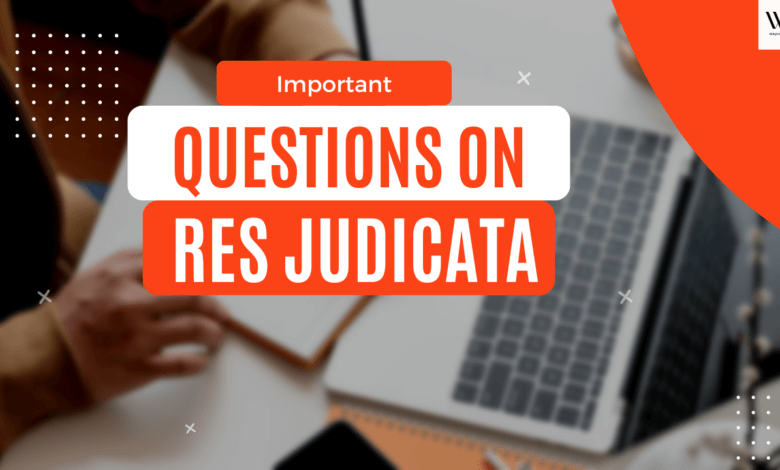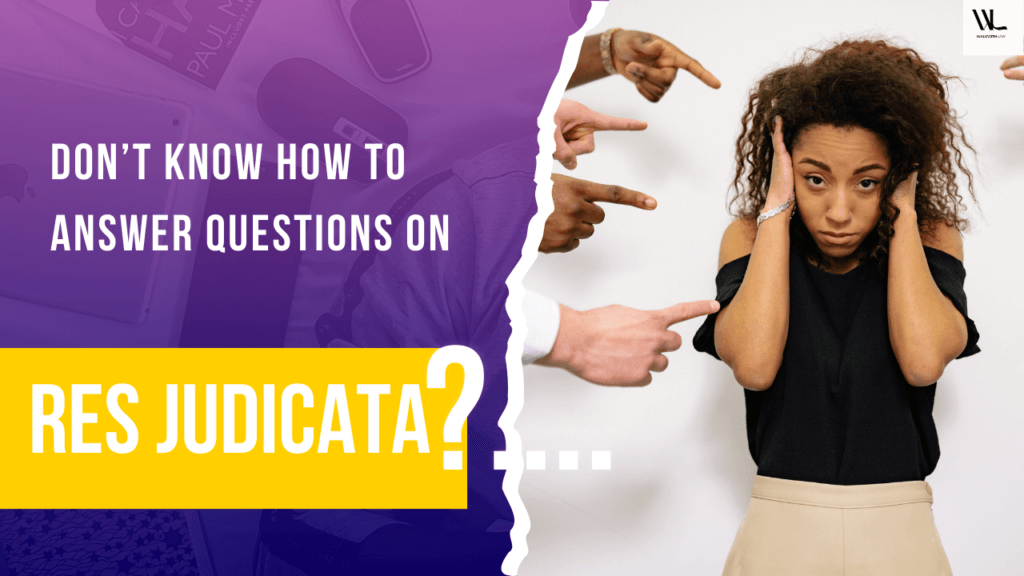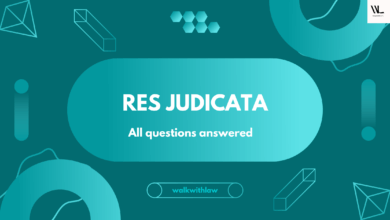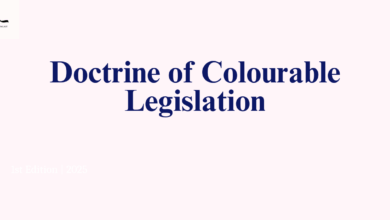15 Important questions on Res judicata
15 Important questions based on Res judicata

Important questions on Res judicata – Answer in the end
Introduction to Res Judicata: Answering the Crucial Questions on Res Judicata
Ever wondered why you can’t sue the same person twice for the same issue? Or how courts manage to prevent endless legal battles over the same dispute? The answer lies in the powerful legal doctrine of res judicata. This principle, rooted in the need for judicial efficiency and fairness, ensures that once a matter is adjudicated, it cannot be reopened by the same parties. But what exactly is res judicata, and why is it so vital to our legal system?

In this blog, we’ll delve into the essential questions surrounding res judicata. We’ll explore its key elements, understand its application through real-world examples and landmark case laws, and discuss its significance in maintaining the finality of judgments. Whether you’re a law student, legal professional, or simply curious about the workings of the judicial system, this comprehensive guide will shed light on one of the most fundamental doctrines in law.
Important questions on Res judicata
- Explain in detail the principle of Res judicata.
- Explain the scope, object, and conditions of Res judicata.
- How far does a foreign judgment operate as res judicata?
- What are the essentials for the application of the Doctrine of Res judicata? Explain with examples and relevant case laws.
- Explain the provisions relating to the Doctrine of Res judicata as per the Code of Civil Procedure.
- Explain Res judicata and discuss its importance in civil cases.
- Discuss the doctrine of res judicata, including its elements, types, and purposes. Provide examples and relevant case law to support your explanation.
- Analyze the impact of res judicata on judicial efficiency and fairness. How does it balance the interests of finality and justice?
- Examine the case of Parklane Hosiery Co. v. Shore and its implications for the application of offensive collateral estoppel. How does this case illustrate the principles of issue preclusion?
Mastering the Judiciary Examination: Your 30-Day Study Plan
Short Answer Questions on Res Judicata
- Define res judicata and explain its importance in the legal system.
- What are the main differences between claim preclusion and issue preclusion?
- Explain the significance of the case Federated Department Stores, Inc. v. Moitie in the context of res judicata.
Hypothetical Scenario Questions on Res Judicata
- Alice sues Bob for negligence and loses the case. Two years later, Alice sues Bob again for the same incident, claiming negligence. Bob moves to dismiss the case based on res judicata. Discuss whether Bob’s motion should be granted, explaining the application of res judicata in this scenario
- Carol sues Dave for breach of contract, and the court rules in Carol’s favor. Later, Carol learns of additional breaches related to the same contract and files a new lawsuit against Dave. Discuss whether Dave can successfully use the defense of res judicata to dismiss the new lawsuit.
- In a previous lawsuit, a court decided that Ed was not liable for fraud in a transaction with Frank. George, who was also affected by the same transaction, now sues Ed for fraud. Discuss whether Ed can use the principle of collateral estoppel to prevent George from relitigating the issue of fraud.
Here is the answer –
Res Judicata Explained – A Complete Guide
Why Res Judicata is Important for Law Exams
Res judicata is a critical doctrine in law exams because it tests students’ understanding of fundamental principles that ensure judicial efficiency and finality. Knowing res judicata is essential for demonstrating an ability to analyze and apply legal concepts to prevent redundant litigation. It also showcases a student’s grasp of case law, procedural rules, and their implications in real-world scenarios. Mastery of res judicata illustrates a comprehensive understanding of how legal systems maintain consistency and fairness, making it a vital topic for aspiring legal professionals.
Join us as we answer the most important questions on res judicata, unraveling its complexities and highlighting its crucial role in the pursuit of justice.



